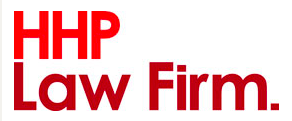3 June, 2019
The Financial Services Authority (Otoritas Jasa Keuangan – "OJK") issued Rule No. 14/POJK.04/2019 on Amendment to Rule No. 32/POJK.04/2015 ("POJK 32/2015") on Increase of Capital of Public Companies With Preemptive Rights ("POJK 14/2019"). The rule came into effect on 30 April, but a copy of this rule was only been made available to the public recently.
POJK 14/2019 consolidates POJK 32/2015 and POJK No. 38/POJK.04/2014 on Increase of Capital of Public Companies Without Preemptive Rights ("POJK 38/2014") by revoking POJK 38/2014, and amending the provisions that were contained in POJK 38/2014 and incorporating them into POJK 32/2015.
What's New?
POJK 14/2019 tightens the shareholders’ approval requirement for a non- preemptive rights issuance ("NPR") of a public company that is not in financial distress to protect independent and unaffiliated shareholders’ interests. Under POJK 14/2019, a public company is deemed to be in financial distress in the following circumstances:
-
For a bank, the bank received a loan from Bank Indonesia (the central bank) or other government agency amounting to more than 100% of the bank’s paid up capital or the bank is in a condition that could lead to the bank being restructured by a government agency.
-
For a non-bank, the company has negative net working capital and liabilities of more than 80% of the company’s assets.
-
For both banks and non-banks, the entity fails to satisfy its financial liabilities to its non-affiliated creditor and such creditor agrees to take shares or convertible bonds as settlement of the liability.
For a public company that is not in financial distress, the 10% in two years limitation on capital increase in an NPR still applies.
Key Provisions
Unlike under POJK 38/2014, POJK 14/2019 makes a distinction in the shareholders’ approval required in an NPR of:
-
a public company in financial distress
-
a public company not in financial distress
Both NPRs must be approved by the public company’s general meeting of shareholders ("GMS"). But for a public company NOT in financial distress, POJK 14/2019 requires the public company to obtain the approval of its independent shareholders and unaffiliated shareholders in a GMS under the following quorum and voting requirements:
First GMS |
Second GMS Third GMS |
||||
|
Quorum Requirement |
Voting Requirement |
Quorum Requirement |
Voting Requirement |
Quorum Requirement |
Voting Requirement |
|
More than 50% of the total shares held by independent shareholders and unaffiliated shareholders with valid voting rights |
More than 50% of the total shares held by independent shareholders and unaffiliated shareholders with valid voting rights |
More than 50% of the total shares held by independent shareholders and unaffiliated shareholders with valid voting rights |
More than 50% of the total shares held by independent shareholders and unaffiliated shareholders with valid voting rights attending the GMS |
As determined by the OJK |
More than 50% of the total shares held by independent shareholders and unaffiliated shareholders with valid voting rights attending the GMS |
If the quorum requirement in the first GMS is not satisfied, the public company may convene a second GMS. If the quorum requirement in the second GMS is not satisfied, the public company may convene a third GMS. If the quorum requirement is satisfied (in any of these GMSs) but the voting requirement is not satisfied, the GMS is deemed to have disapproved the NPR.
Moving Forward
This change in essence means that public companies' controlling and affiliated shareholders will now not be able to vote in a GMS to approve an NPR, which makes it challenging for public companies not in financial distress to carry out an NPR going forward.
Iqbal Darmawan, Partner, Baker & McKenzie
iqbal.darmawan@bakermckenzie.com





